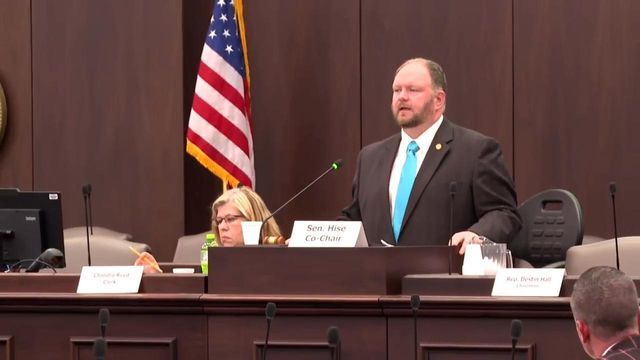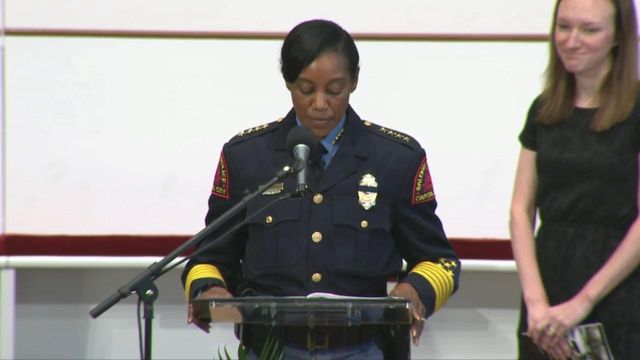NC redistricting gets underway with voter feedback, less transparency
North Carolina’s redistricting process, which got formally underway this week, will be less transparent due to a change in state open records law Republican lawmakers added to the state budget with little public notice.
That change removes a long-standing state law that made public redistricting documents, from draft maps to emails that lawmakers send about the process of drawing election lines, once the maps are final.
It was part of a larger shift in North Carolina open records laws that budget writers dropped into this year’s spending plan, exempting General Assembly members from those laws and leaving it up to individual General Assembly members what records to release.
Redistricting documents and other lawmaker communications may still become public through lawsuits, though. Legislators will still be expected to preserve records if they expect a suit, and lawsuits are often filed over the redistricting process, a process that helps decide which party controls the legislature and the state’s congressional representation.
Republican leaders in the state legislature, who write the budget because their party controls both chambers, say the change was needed in part to prevent onerous requests that can sap state resources.
But restricting the ability for the media, outside groups and members of the public to force the release of lawmaker records by simply asking for them through the open records act — in the redistricting process and in general — removes a clean-government protection, open records advocates say.
“That bit of sunshine could help encourage better conduct,” said Jeff Loperfido, interim chief voting rights counsel for the Southern Coalition for Social Justice, which has sued the General Assembly’s Republican majority over voting rights issues in the past.
The open records changes were part of a 625-page state budget bill formed behind closed doors and released to the public — and many rank-and-file lawmakers — less than 24 hours before votes to approve the budget were taken last week. That budget had to be voted on as one document, with no amendments allowed.
Gov. Roy Cooper announced soon after the final vote that, although he disagreed with many sections of the budget, he’d let it become law without his signature in large part because a Medicaid expansion that will provide taxpayer-funded health insurance to hundreds of thousands of the state’s working poor depended on the budget becoming law.
The legislature’s top Republican leadership signed off on the open records changes. Speaker of the House Tim Moore said there was confusion in the past over just how far legislative privilege, which protects documents such as bill drafts before legislation is filed, extended at the statehouse. The idea was to simplify and clarify these rules, Moore said.
Moore, R-Cleveland, also said some people try to “weaponize” the open records law, asking lawmakers for massive amounts of information in requests that seem designed to hassle more than to learn.
Moore said this week that he couldn’t give any examples off the top of his head of requests like that from before the budget language rolling back the law was released. His spokeswoman didn’t respond to a text seeking specific examples. Other lawmakers in the past have voiced Moore’s concern.
‘A little bit of chaos’
North Carolina will now be one of at least half a dozen states that exempt state lawmakers from open records rules that other government officials — including city and county governments and the governor’s office — must abide by, according to the National Conference of State Legislatures.
A number of records requests have been filed with lawmakers as people try to beat a deadline before the change becomes law, which it’s scheduled to do first thing Tuesday — at midnight, Oct. 3. It remains to be seen whether lawmakers will fill those requests under the law as it exists now or whether they argue that they’re able to determine for themselves what is, and isn’t, a public record, as the new law states.
“I don’t know what to anticipate,” said Brooks Fuller, director of the North Carolina Open Government Coalition. “I anticipate a little bit of chaos.”
Some people hope lawmakers will quickly undo the change, which they could do at any time through future legislation. The John Locke Foundation, a right-leaning think tank, has called on the legislature’s Republican leadership to narrow the exemption as part of the General Assembly’s “technical corrections” bill, an annual piece of legislation used to correct errors in the budget bill, and sometimes to substantially change policy.
There’s no indication so far that lawmakers will do that.
Just because the documents are no longer designated public records doesn’t mean lawmakers can shred them. A lawsuit over the redistricting process is almost guaranteed, and rules of evidence require people to preserve documents relevant to a lawsuit.
That hasn’t always happened in redistricting, though, even under the old law specifically requiring the eventual public release of redistricting documents. During a lawsuit over the 2022 redistricting process, House Rules Chairman Destin Hall acknowledged under oath that secret “concept maps” were consulted as the final maps were drawn.
Attorneys for Hall and other Republicans involved in the redistricting process said in court filings that the concept maps no longer existed.
Public hearings
Lawmakers this week began a series of public hearings as they prepare to spend the coming weeks redrawing the state's voting maps for Congress and their own seats in the General Assembly. The last meeting was scheduled for Wednesday in Raleigh. Votes on the maps could happen as early as the week of Oct. 9, state Senate Leader Phil Berger, R-Rockingham, said last week.
Berger has said lawmakers plan to redraw the Congressional maps first, then after a few days get to work on maps for their own districts. That could allow influential state legislators to have the time to decide if they want to run for one of the new Congressional districts or if they want to run for reelection to the state legislature instead.
Lawmakers have been criticized in the past for not taking into account what the public has to say at hearings like these when they do draw the maps. But there's also nothing requiring them to hold the hearings. GOP leaders say they wanted public input before starting to draw the maps.
On Monday dozens of advocacy and voting rights groups including the NAACP, El Centro Hispano and Common Cause NC sent a letter to state lawmakers urging for a more transparent process, as well as for maps that accurately represent the state.
“Open and transparent redistricting is not only fundamental to a representative democracy, but it is also crucial to strengthening trust in our elected officials and government,” the letter said. “The recent actions and inactions of legislative leaders make us deeply concerned that the North Carolina General Assembly will once again fail at its responsibility to create a robust, transparent, and thoughtful process for receiving vital public input to draw new maps.”











